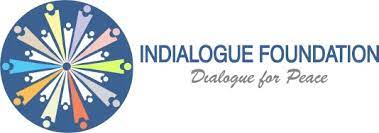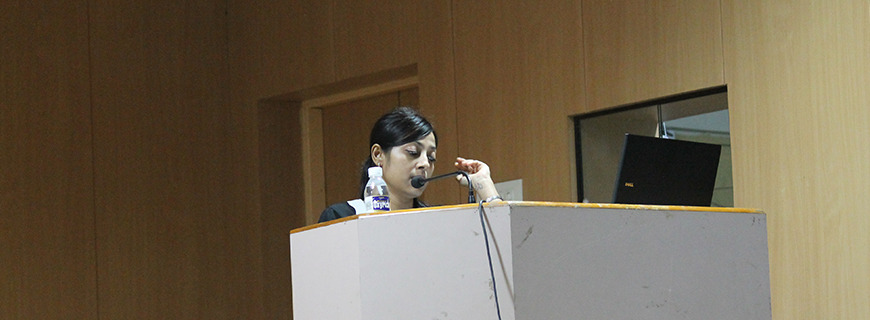By Jhilam Chattaraj,
I. Introduction
Accidents of history, politics and culture have repeatedly urged India and Turkey to revive their old friendship. It is diplomatically difficult but culturally possible. Since the year 2005, Indialogue Foundation, has been trying to address the gaps and silences between the Indian and Turkish intelligentsia. Thus trying to create what we may term tentatively as an ‘intellectopia’ of its own. In the context of this paper, the term ‘intellectopia’ refers to a state of existence where conditions of life are predominantly influenced by the activities of the intellect. Intellectopia, could include acts and states of knowledge production in many different fields such as arts, technology, science, literature, culture and so on. One could perceive Indialogue Foundation as a body of knowledge that has created an intellectopia, exclusively on the philosophy of global peace, multiculturalism, philanthropy, cultural tolerance and social service. These approaches have been materialised through numerous intellectual and material activities such as conferences, symposia, seminars, exhibitions, award functions, cultural fetes, workshops, visits & trips, publications and relief work.
The name ‘Indialogue Foundation’ has been derived from the combination of two words; “India” and ”Dialogue”, which refers to “in dialogue with India”. Inspired by Mevlana Jalal-ad-Din Rumi, it states its mission as “Dialogue for Peace”[1]. It aims to promote local, national, international, inter-civilizational, intercultural, interfaith, inter-communal and interethnic dialogue on love, tolerance, harmony, and peace. Sounds impossibly idyllic! But the Foundation has already paved ways for the possible cultural dialogues between India and Turkey. This paper will critically analyse the activities of the organisation with the help of cultural and sociological insights. It hopes to place Indialogue Foundation within a field of interpretation relevant to the contemporary cultural scenario in India.
II. A culture of many
Here, the term culture refers not just to a shared system of values among selected groups of people but an expression of diversity, representations, constructions and interpretations by individuals, groups or sub-groups[2]. Culture as Raymond Williams explained is ‘A way of life’[3]. Indialogue Foundation conducts conferences, symposia, seminars, exhibitions, award functions, fetes, workshops, visits, trips, publications and relief work in a manner in which intellectual activities can become a ‘way of life’. The Foundation’s work based on the philosophy of global peace, multiculturalism, philanthropy, cultural tolerance and social service is meant both for people with specific scholarly skills such as academicians, critical thinkers, artists and all others who wish to refine their knowledge by attending lectures, workshops, food festivals, concerts, dinner parties, and other forms of cultural dialogue. Indialouge Foundation does not confirm to the traditional distinction between high and low culture. Indialogue’s intellectopia includes a culture of many; here people regardless of their race, class, religion and gender can initiate friendly dialogues between India and Turkey.
III. Creating new spaces of everyday popular culture
From the above examples, it is clear that Indialogue Foundation has highlighted the intellectual utility of popular cultural spaces. Here, popular culture refers to anything that claims its allegiance with the people and represents their interest and broader cultural patterns[4]. In the context of Indialogue Foundation, food festivals, concerts and even Iftar gatherings become important cultural spaces for easily disseminating complicated social messages. Thus, a friendly joke between Turkish and Indian friends or little Turkish girls dancing on Indian’s Independence Day is as important as diplomat’s brain-storming in a high-profile meeting on India-Turkey relations. Indialogue Foundation transforms the everyday activities such as work, food, conversation and travel into spaces of cultural and intellectual interest.
IV. Bulwark against cultural homogenisation
Indialogue foundation’s intellectopia harks back to the traditional historical culture of India and Turkey by rearticulating thoughts on religion, community, tolerance, and cultural agents such as food, music and poetry that is essentially Indian or Turkish. Its activities always echo the charm of the local. The foundation has been particular to take note of Indian festivals such as Diwali, Dusherra, Holi or other religion or region based ethnic events. By celebrating such ethnic cultural markers of India, it strengthens the local roots of the nation against cultural homogenisation. In times when the Euro-American corporates are keen to control popular culture through companies as, Mac Donald’s or by broadcasting globally popular serials like Homeland, Big Bang Theory, etc Indialogue Foundation alludes to traditional art and culture to highlight the spirit of the many Indias and Indianessess that make this country. In times when systems of global communications are reducing nations to ‘scapes’ or a product of ‘liquid modernity’, Indialogue Foundation is trying to imagine a geo-politically definite and culturally porous nation[5]. The Foundation has attempted to represent India and Turkey through their rich ethnic history. However, it would be a romantic whim to confidently state that the organisation is absolutely immune to the cultural homogeneity spread by global digital revolution. So where does Indialogue Foundation stand in a world where, ‘all that is solid melts into the air’?[6] One can tentatively locate them within the ambiguities of modern times. They are trying to create an intellectopia of their own amidst the absurdities and ironies of modernity. The idea has been beautifully explained by Marshall Berman as ‘To be modern is to live a life of paradox and contradiction…To be revolutionary and conservative…to be alive to new possibilities and be frightened by the nihilistic depths into which so a many modern adventures lead, longing to create and to hold on to something real even as everything melts. We might even say that to be fully modern is to be anti-modern’[7].
V. Intellectualism without imperialism
Indialogue Foundation relocates Turkish language, art, food, customs, culture and familial relations within the present discursive intellectual spheres of India. This is very evident in the Foundation’s attempt to encourage Indian students to learn Turkish, find friends among people from Turkey and strike a conversation over a hot cup of Turkish chai and other delights. This is the uniqueness of Indialogue foundation. Unlike many other NGOs, it is not an extension of any imperialistic mission. Recent studies have tried to find out if NGOs are friends of the people or corporate powerhouses?[8]Arundhati Roy critiques the role of many corporate funded American NGO’s saying, ‘Why should these agencies fund NGOs? Could it be just old-fashioned missionary zeal? Guilt? She continues on how the U.S. prepares to invade a country and then simultaneously sends NGOs to clean up the devastation [9].
A review of the activities of Indialogue foundation would show that the organisation has never been a token consolation for any major political crises between India and Turkey. It has worked towards a peaceful promotion of cultural messages between the two nations.
VI. Talking Identities
Yunus Emre, a legendary Turkish poet wrote in one of his poemsthat, ‘knowledge means to know yourself, heart and soul’[10]. This is just one of the ways of knowing oneself. Our identities are also formed by the way we understand and interact with the others. That’s why dialogue is important. Indialogue Foundation has always emphasised the need for knowing the other. It has encouraged the interflow of thoughts between Indian and Turkish thinkers. For example, the recent visit of Swami Shantatmananda to Turkey and the national seminar conducted on Gandhi Jayanti on the idea of ‘embracing the other’.
The Foundation has also offered several Turkish families an opportunity to live in India. Mr. Osman Kayaogolu, the current director of Indialogue Hyderabad Office, that ‘Turkish people in the city do miss their family and friends back home as well as Turkish food; but they have found a home away from home here…Hyderabad is our second home. Merhaba Hydarabad!’[11]. The warmth in Mr. Osman’s words exudes a nostalgic poignancy that one may relate to the present forms of trans-national citizenry popularised by global corporates. But here it is an NGO; Indialogue Foundation has offered Turkish people a chance to open up their cultural identities and absorb the colours and fragrances of India.
It would be pertinent here to also contemplate upon the thoughts of Turkish women; especially, in the context of the present gender crises in India. Do they feel alright? One Turkish student admitted that she gets stared at by Indian men as much as an Indian girl. But she is not clear whether she draws people’s attention for being a foreigner. However, she enjoys her life in India and especially the cultural diversity.
VII. Conclusion
In a world where brutal terrorist attacks have generated a false sense of Islamophobia and mistrust towards people of other cultures in general, organisations like Indialogue Foundation play an important role. They have generated cultures of intellect that represent the manner in which a civil society organization can contribute towards international dialogue and peace building. They have attempted to create an intellectopia that reflects the beauty of dialogue and its power to bring people closer. It does not matter whether one is intellectual or emotional, philosophical or materialistic, rich or poor, hindu or muslim, man or woman; individuals just need to talk to each other.
*Author is PhD Scholar in University of Hyderabad. This paper was presented at International Conference on “Indo-Turkish Dialogue: Historical, Social and Cultural Perspectives” organized by Center for Study of Foreign Languages, University of Hyderabad, Mevlana University (Turkey) and Indialogue Foundation on 16th and 17th October, 2014 in University of Hyderabad.
Note:
1. indialogue.in
2. Wetherell, Margaret, Chandra TalpadeMohanty. The Sage Handbook of Identities. Sage Publications. 2010. Print. pp-70
3. Guins, Raiford and Omyara Zaragoza Cruz. Popular Culture: A Reader. Sage Publications. 2005. Print. pp21
4. Conboy, Martin. The Press and Popular Culture. London: Sage Publications. 2002. Print. pp.1.
5. The term ‘scape’ refer to ArjunAppadurai’s notion of scape in his work, Modernity at Large: Cultural Dimensions of Globalization (Minneapolis: University of Minnesota Press, 1996).Also see. Bauman, Zigmunt. Liquid Modernity. Polity Press. UK. 2000. Print.pp:14 for more on the idea of ‘Liquid modernity’.
6. Berman, Marshall. All that is Solid Melts into the Air. Penguin books, USA. 1982. Print. pp.15
7. Jacob Middleton, ‘Friends of the Poor or of Neo-Liberalism?’ Issue section: Columnists Issue: October 2006 (310)
8. http://socialistreview.org.uk/310/friends-poor-or-neo-liberalism
9. taraqee.wordpress.com/2009/04/14/arundhati-roy-on-ngos/
10. http://www.turkishculture.org/philosophers/yunus-emre/selected-poems-ii-
11. www.thehindu.com/features/…/the-turkish-connection/article5368278

